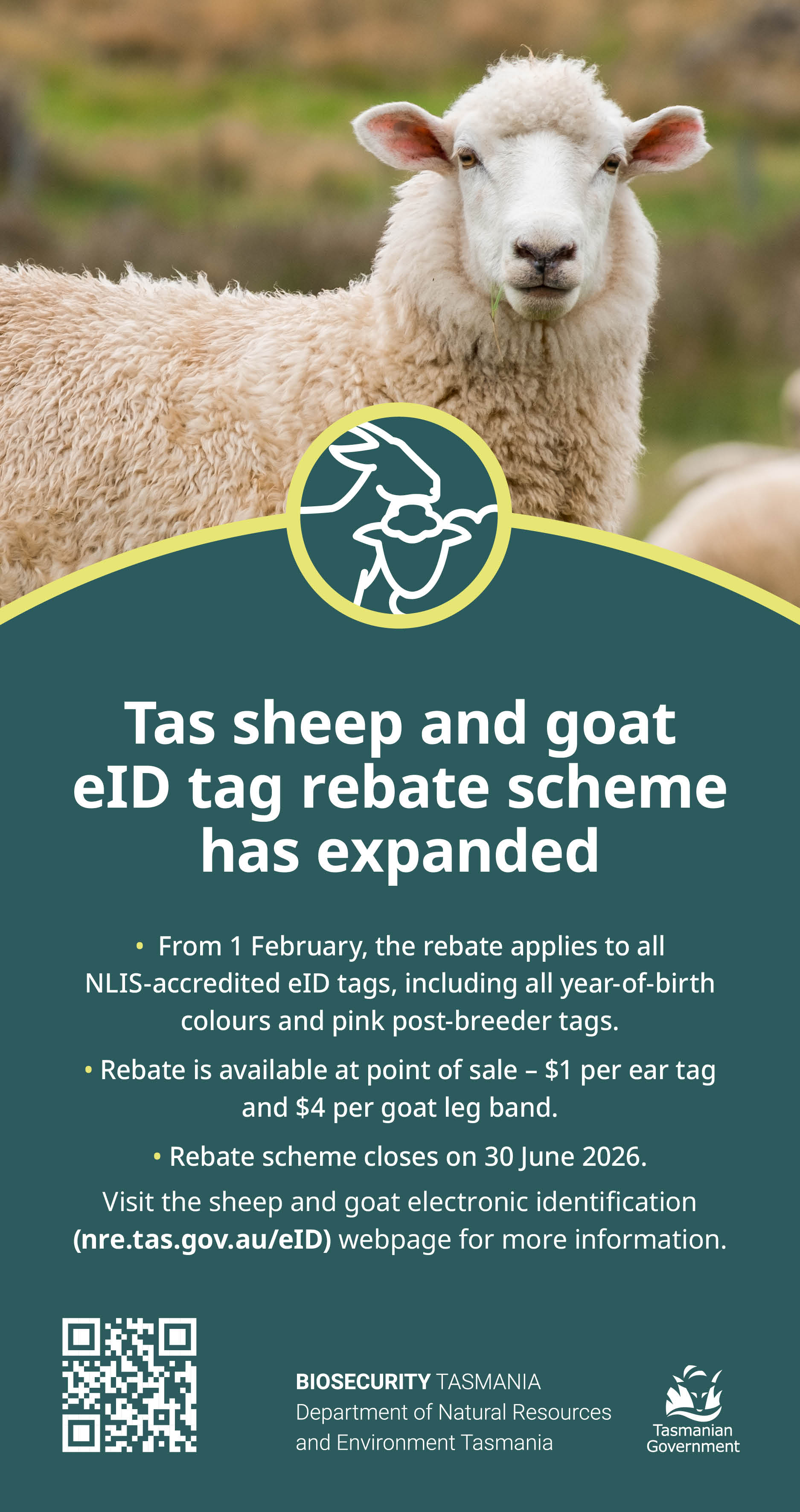Cherry ripe for the bees
FOR Ross Gordon of Grumpy Bee, beekeeping has been part of his life for years.
Mr Gordon took over the reins of his father’s beekeeping hobby as a teenager growing up in South Africa.
Over the years, he cut back on beekeeping while working in different agricultural jobs across the globe.
When Mr Gordon relocated to Tasmania in 2004, he looked for a path that combined his passions for woodworking, agriculture, and honey and after some time away from beekeeping he decided to create the business Grumpy Bee Honey which was launched in 2013 and is now a well-known brand in Tasmania.
Based in Crabtree in the Huon Valley, Grumpy Bee specialises in raw Manuka and Leatherwood honey but also offers a variety of honeys including multifloral, prickly box, and a wildflower honey which is labelled by season.
“It’s a bit opportunistic; if I see a patch of flowers, like blue gums, I might try to get the bees onto that,” Mr Gordon said adding that he enjoys the different flavours of honey the bees make from different plants.
As pollination season kicks off, Mr Gordon has been busy distributing his bees to local cherry orchard, Lucaston Park, where the bees will play a crucial role in ensuring a fruitful harvest.
Mr Gordon says pollination is a crucial part of growing quality cherries. Cherries need bees to move pollen between flowers to achieve pollination and the more flowers that are pollinated, the more cherries that will develop on the tree.
“From a husbandry point of view, you’ve got to get all of your bees ready for pollination, you can’t just take any old beehive and put them on to a crop,” Mr Gordon said.
Each hive must be meticulously prepared, ensuring the bees are healthy, strong, and equipped with enough honey to sustain them, especially when they’re working under nets.
Mr Gordon notes that the bees mustn’t be too strong or weak and have enough honey to get them through pollination.
“Especially for pollinating cherries because being under nets is very hard on the bees, they’ve got to have enough honey otherwise they’ll die.”
“Cherries in particular don’t produce any nectar so the bees are going for three to four weeks out under the nets and it’s a critical time for bees because they’re starting their spring build up where they’re starting to make extra brood which needs a lot of honey and they run out of honey very quickly.”
This is why it is crucial for the bees to go into pollination with enough honey in their hives.
“Checking the honey is a bit of a subjective thing but I think you need at least 10kg of honey in the hive at this time of year to go under the nets.”
“If there’s not enough honey you’ve got to feed,” Mr Gordon said.
Mr Gordon said that while some pollination crops make a bit of honey, by and large with so many bees put onto the one crop, the competition is too intense for them to make enough honey to harvest.
“I’ve had a little bit of honey come back from apples, not enough to harvest but really an interesting honey, a bit back from blueberries as well.”
Mr Gordon says he is often contracted and puts the bees out as the farmers want them for pollination.
With 250 to 300 hives that Mr Gordon built himself, his bees keep him very busy.
They roam across diverse areas, from the southern forests near Dover to the western coastlines during the summer months.
“The husbandry part of beekeeping is what keeps us really busy,” Mr Gordon said.
“We check the bees right down to the brood nest, make sure there’s a laying queen, make sure there’s no disease, and if there is a disease, make sure it’s treated with antibiotics.”
“It’s a lot of work in the summer, with days stretching up to 14 or 15 hours,” he said.
“But this busy season doesn’t last long just January through to mid-March.”
Honey production at Grumpy Bee fluctuates annually, with an average yield of around 10 tonnes.
However, Mr Gordon said he has witnessed dramatic changes in recent years with low years of 4.5 tonnes and high years with over 11 tonnes.
“I honestly don’t know what’s happening with the seasons it’s just been fluctuating so much,” he said.
“Bees are terribly sensitive to environmental changes so maybe it’s climate change maybe it’s not I don’t know.”
As concerns grow regarding the spread of the Varroa mite on the Australian mainland, Mr Gordon remains extra vigilant with his hives.
“The Varroa mite is a constant concern, and I believe it will eventually reach Tasmania.”
“I’ve just checked all my hives and there’s no Varroa yet so long may it last,” he said.
Grumpy Bee extends beyond just honey production however, and Mr Gordon collaborates with local producers and artisans, who infuse his honey into products such as gin and chocolate.
He is also a familiar face at Hobart’s Farm Gate Market every Sunday, where his offerings attract the locals.
All the honeys Grumpy Bee produce are raw which preserves the nutrients and antibacterial properties that high-heat processing can strip away.
Despite the challenges and busy nature of beekeeping, Mr Gordon’s passion remains.
“I love raising queens and I love honey, I love all the nuances in it, the medicinal benefits, I find it very very interesting.”




Add new comment